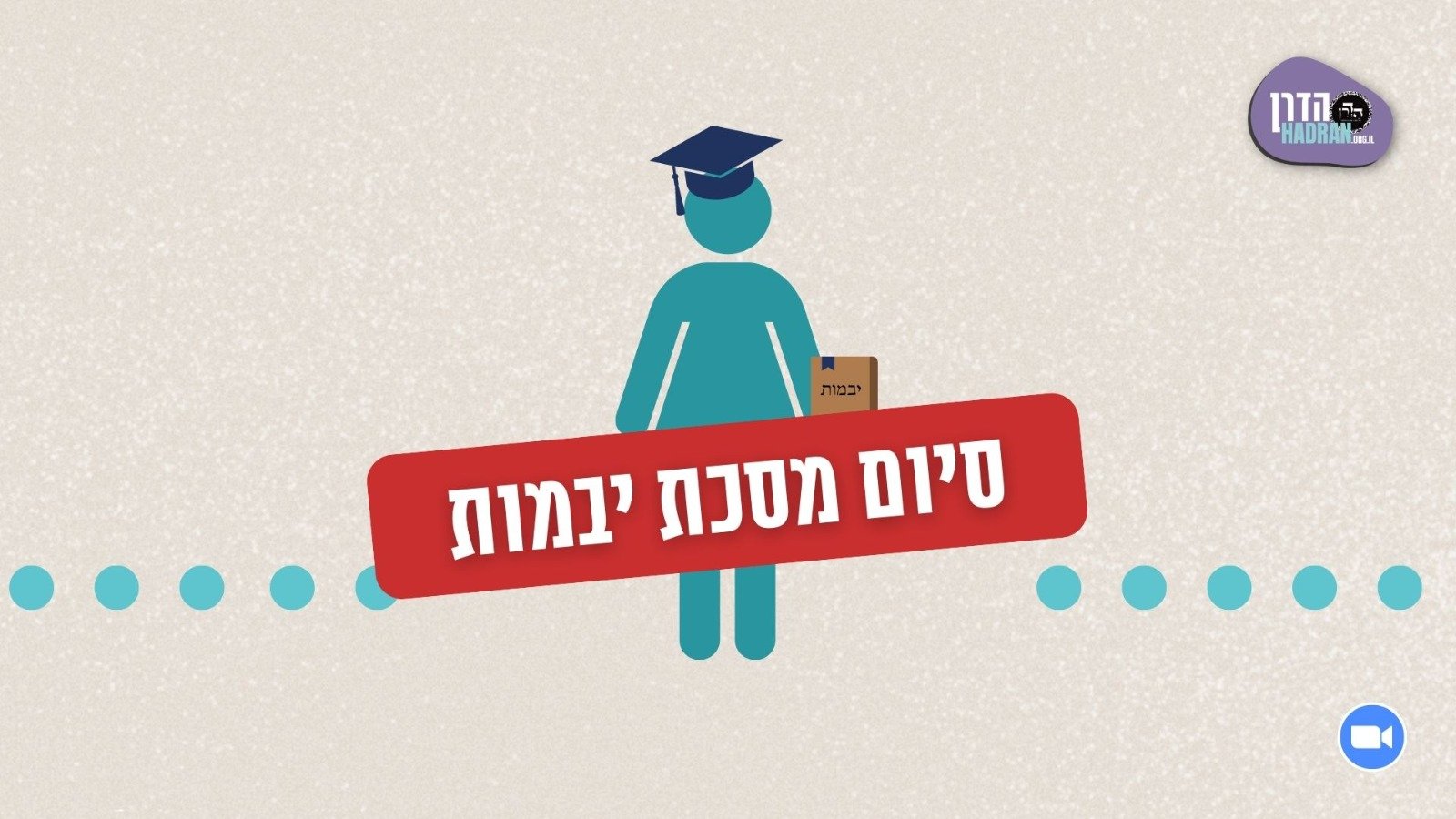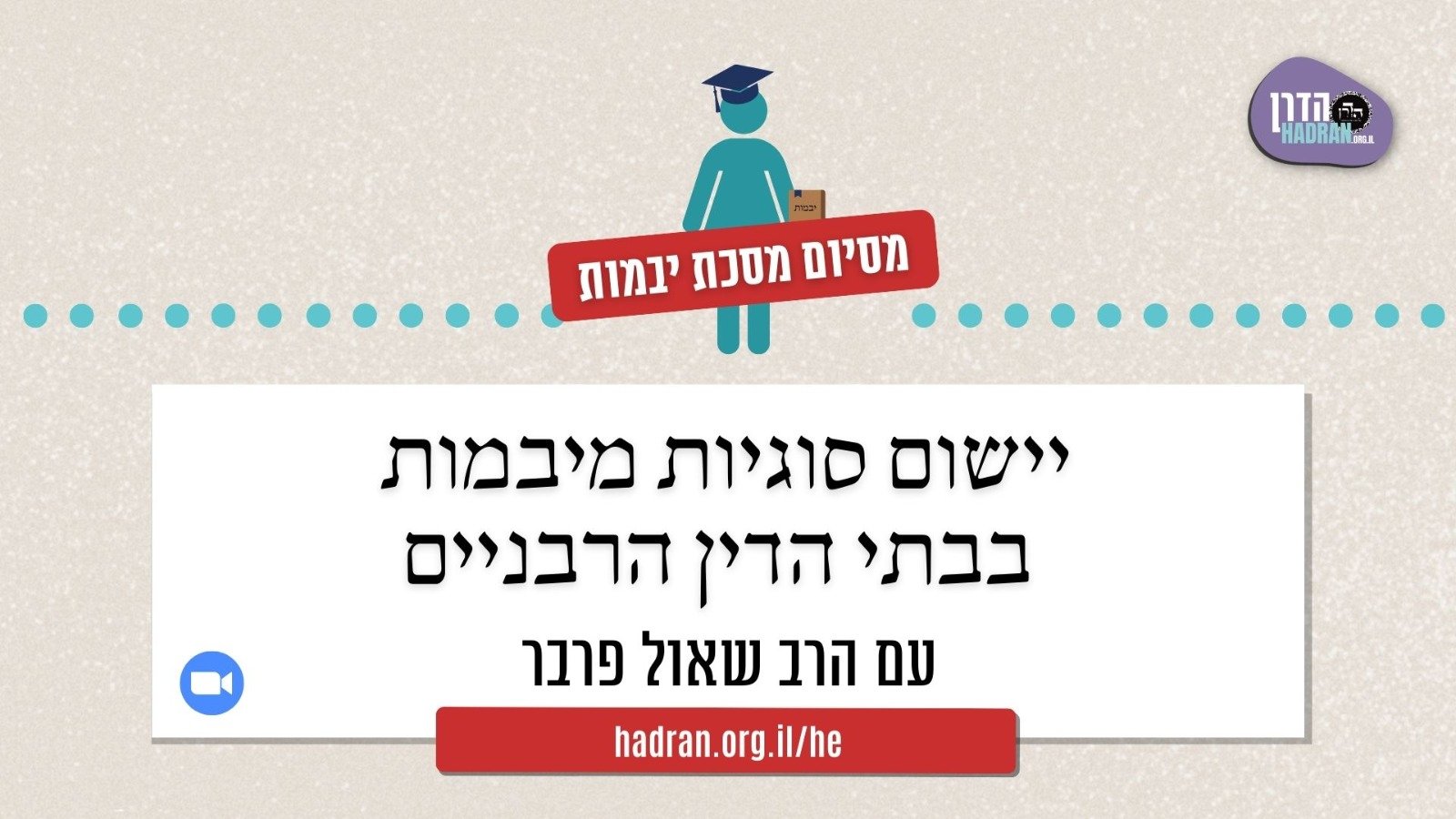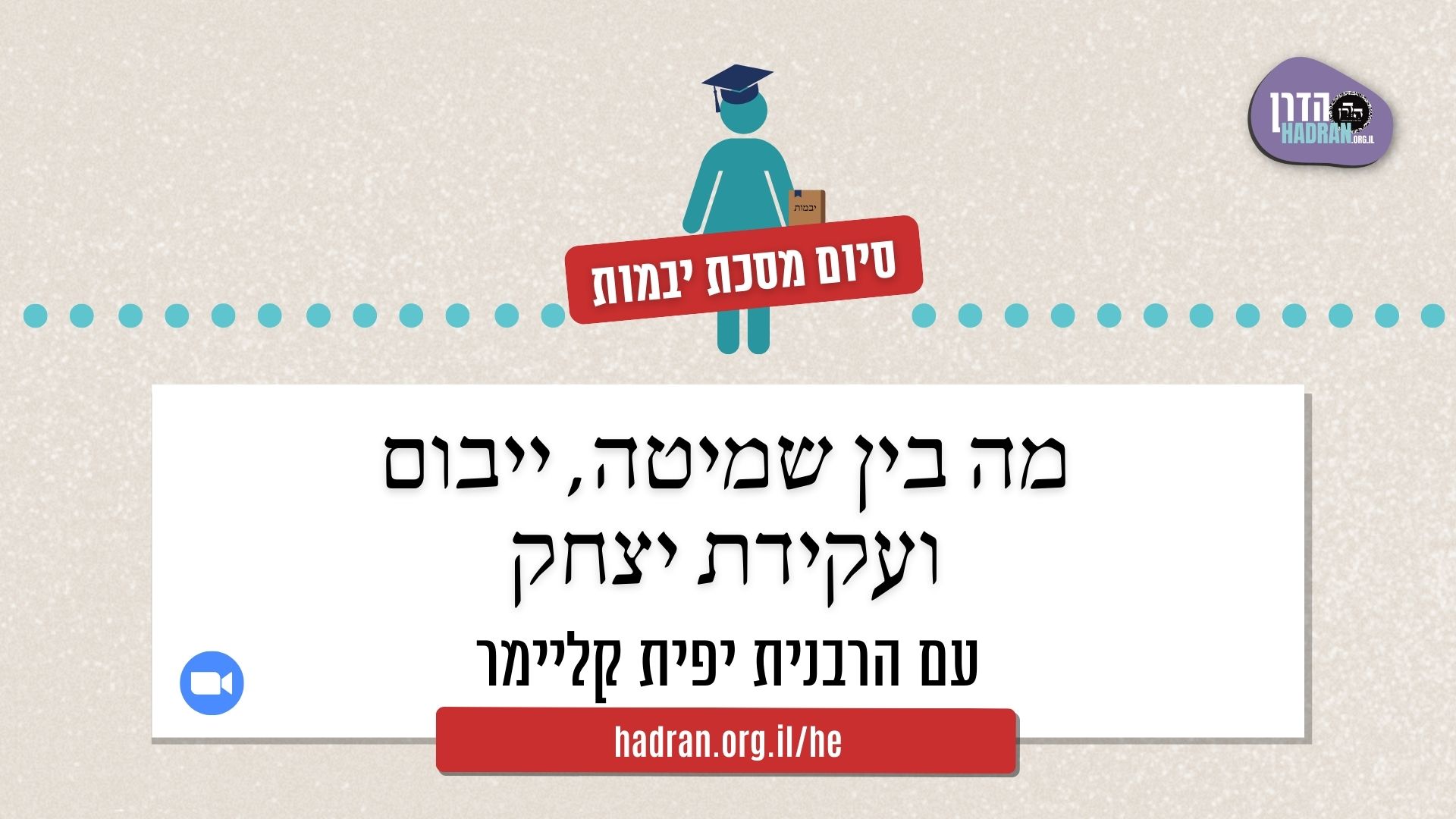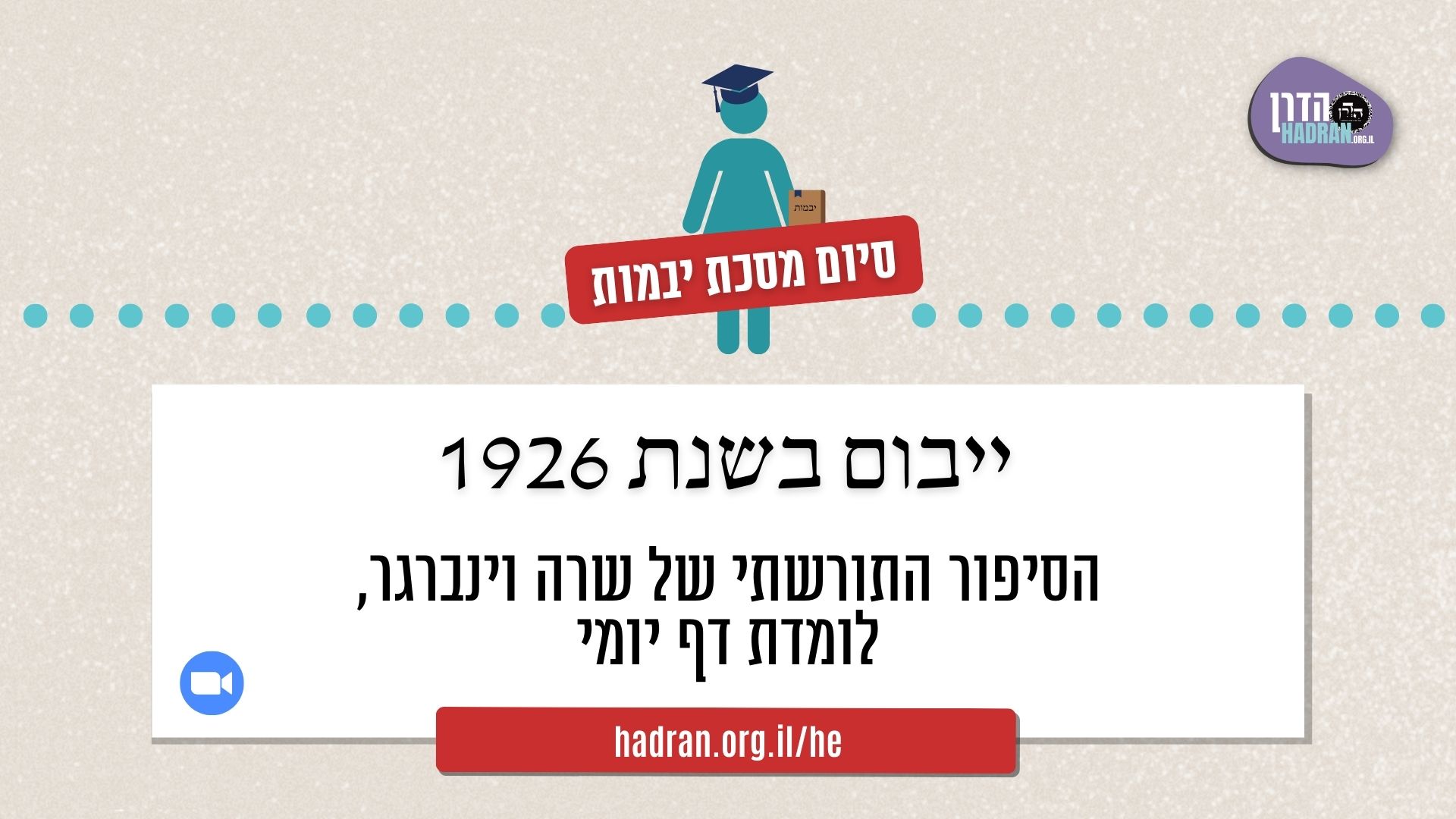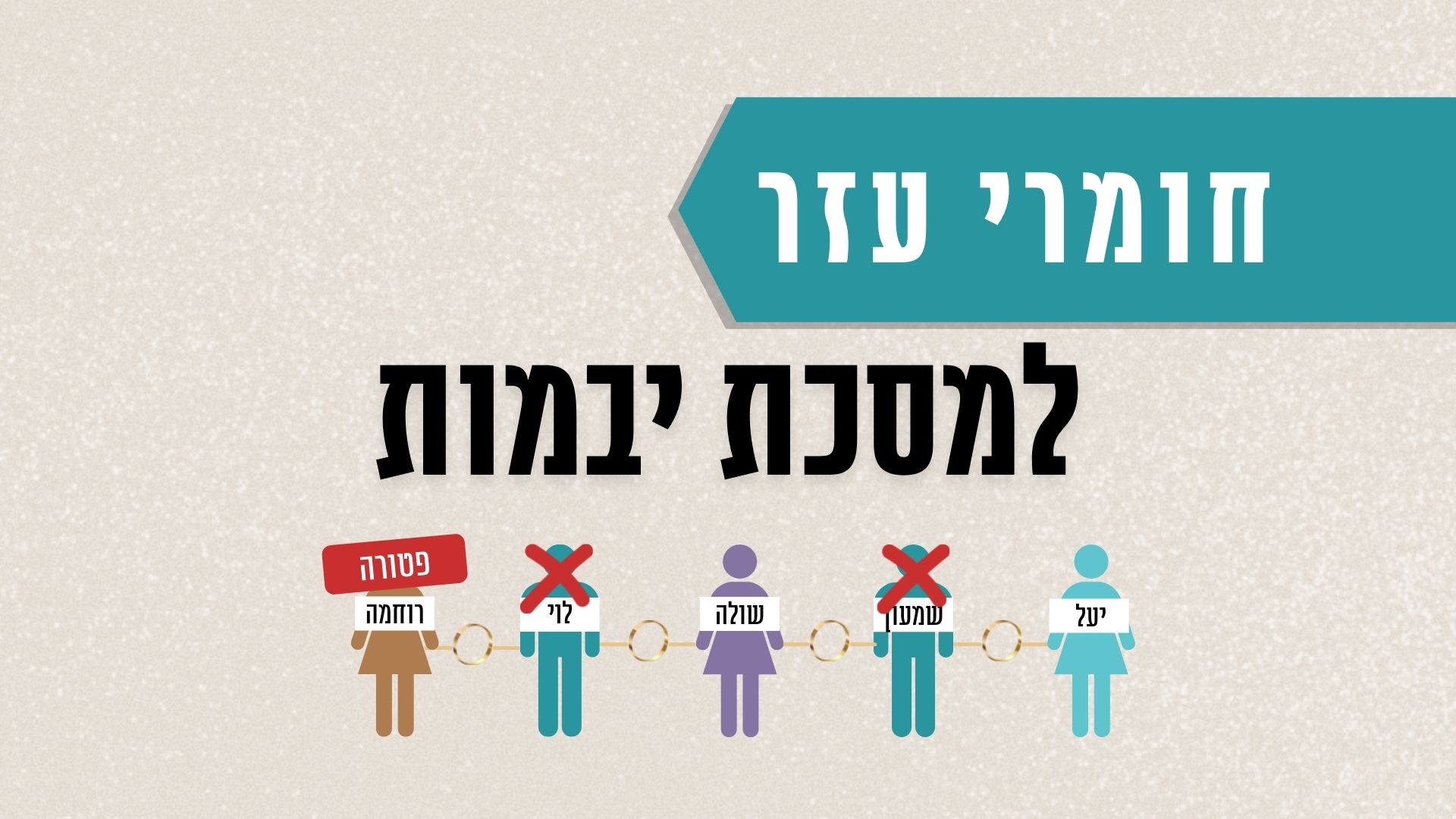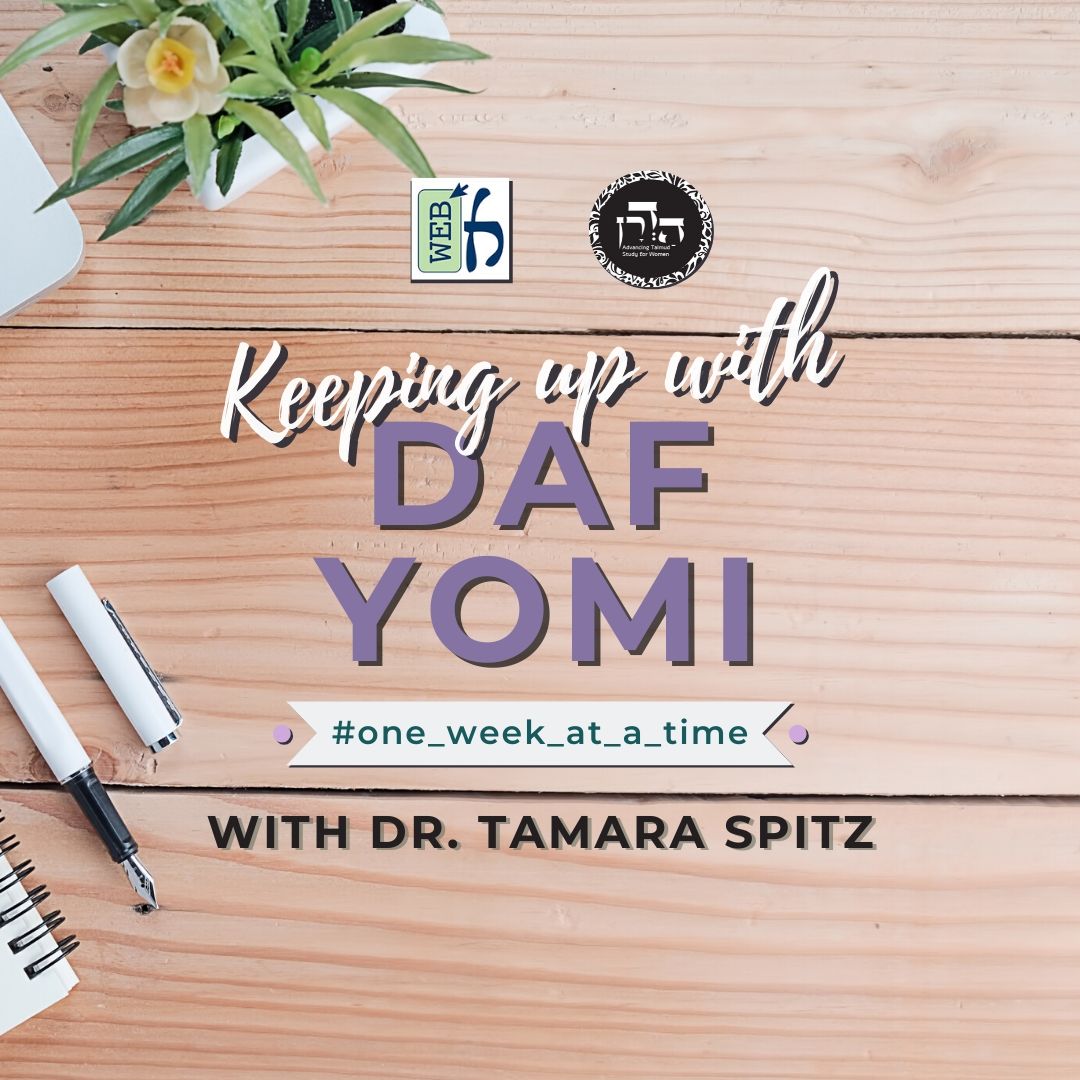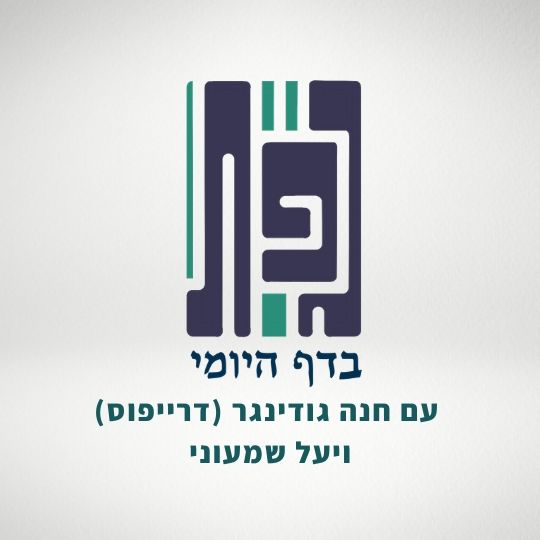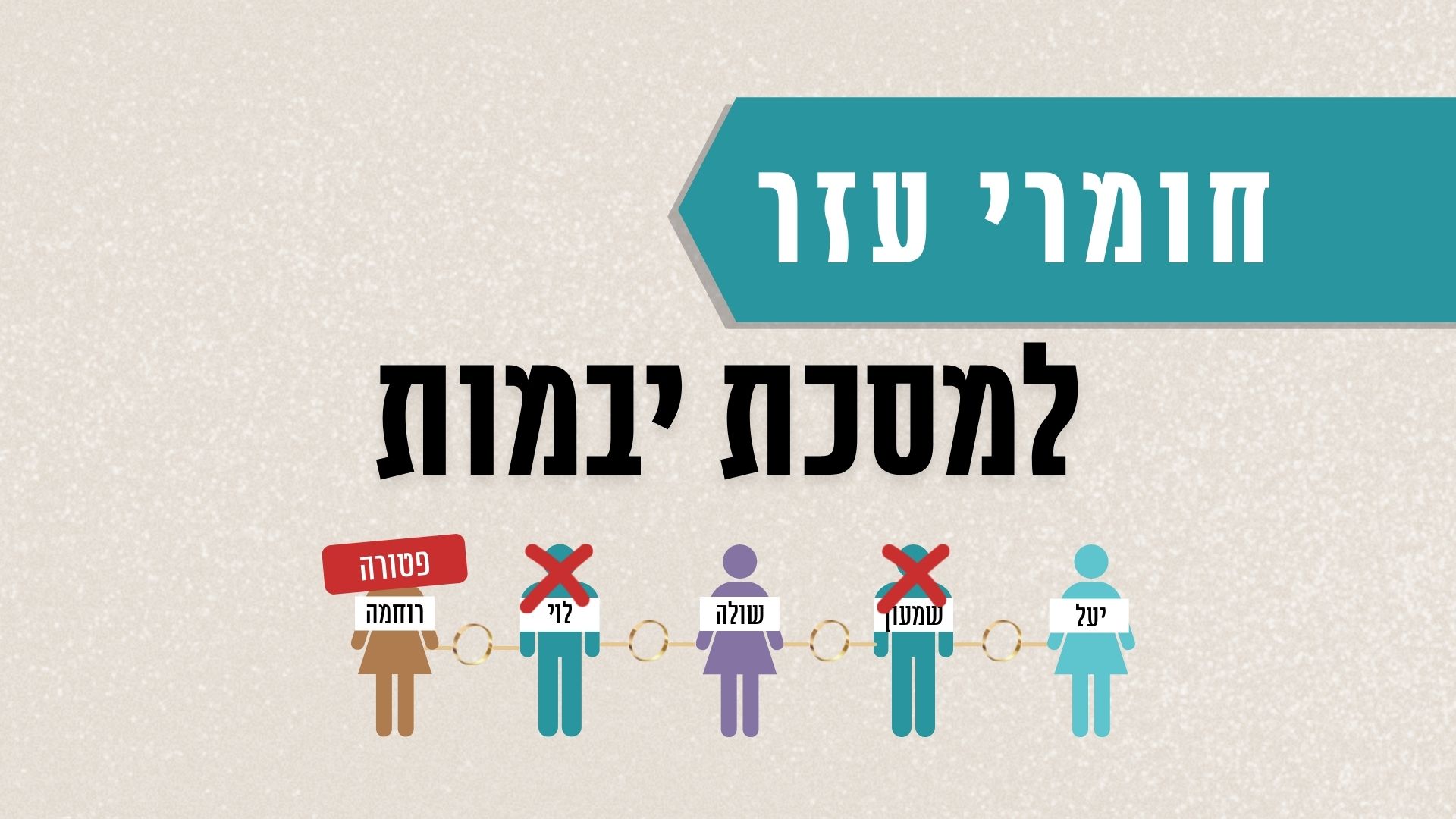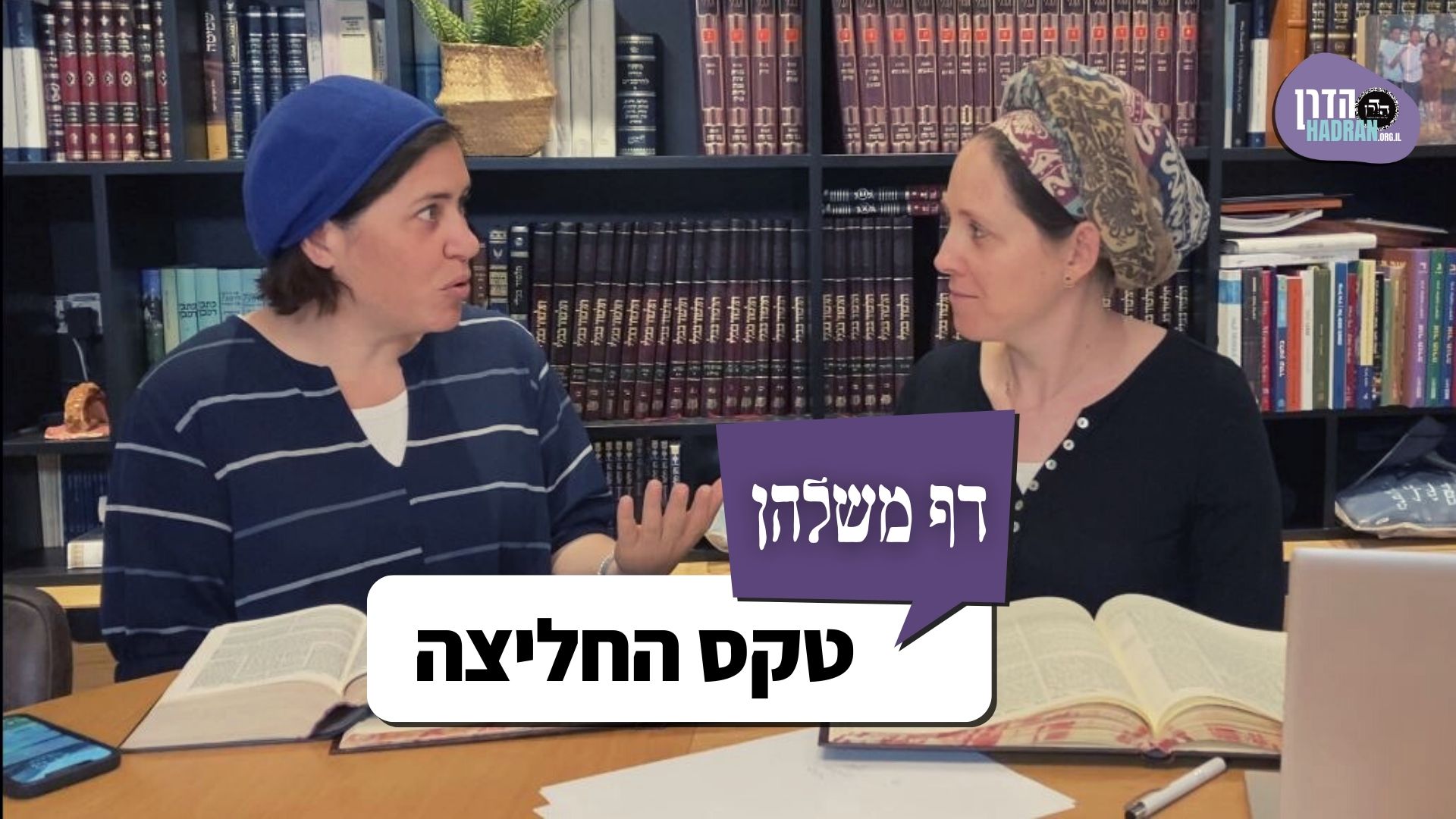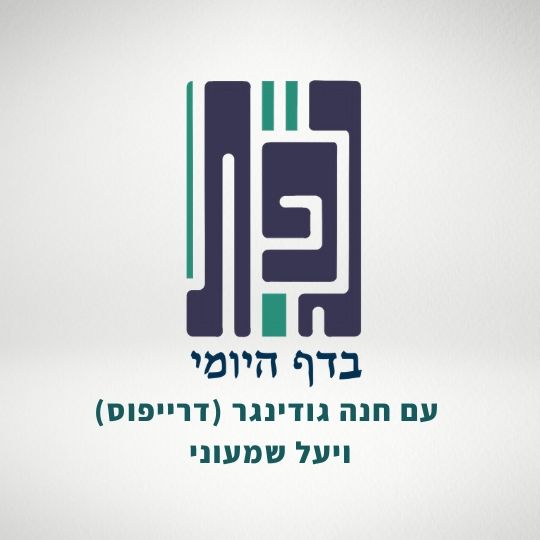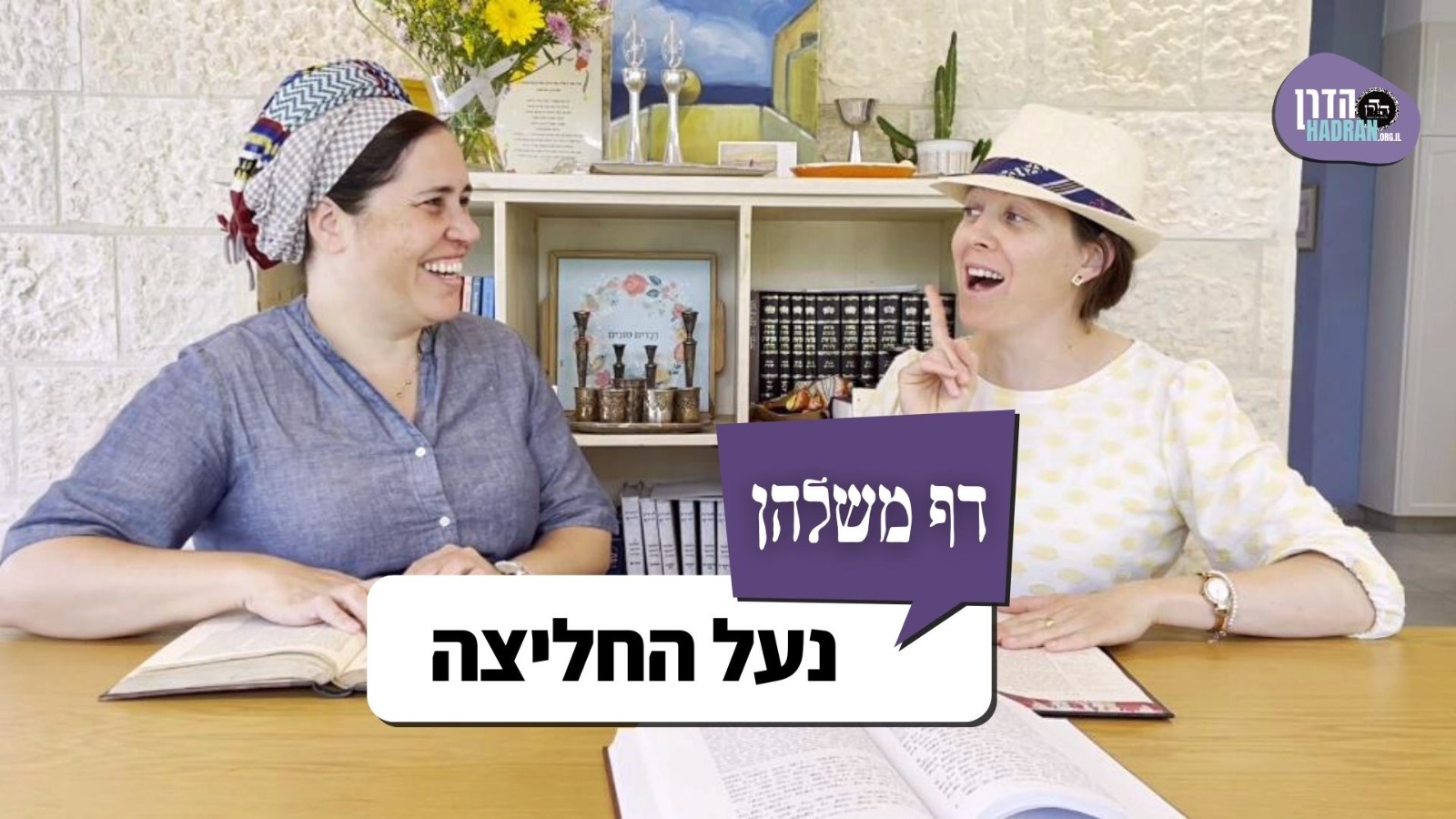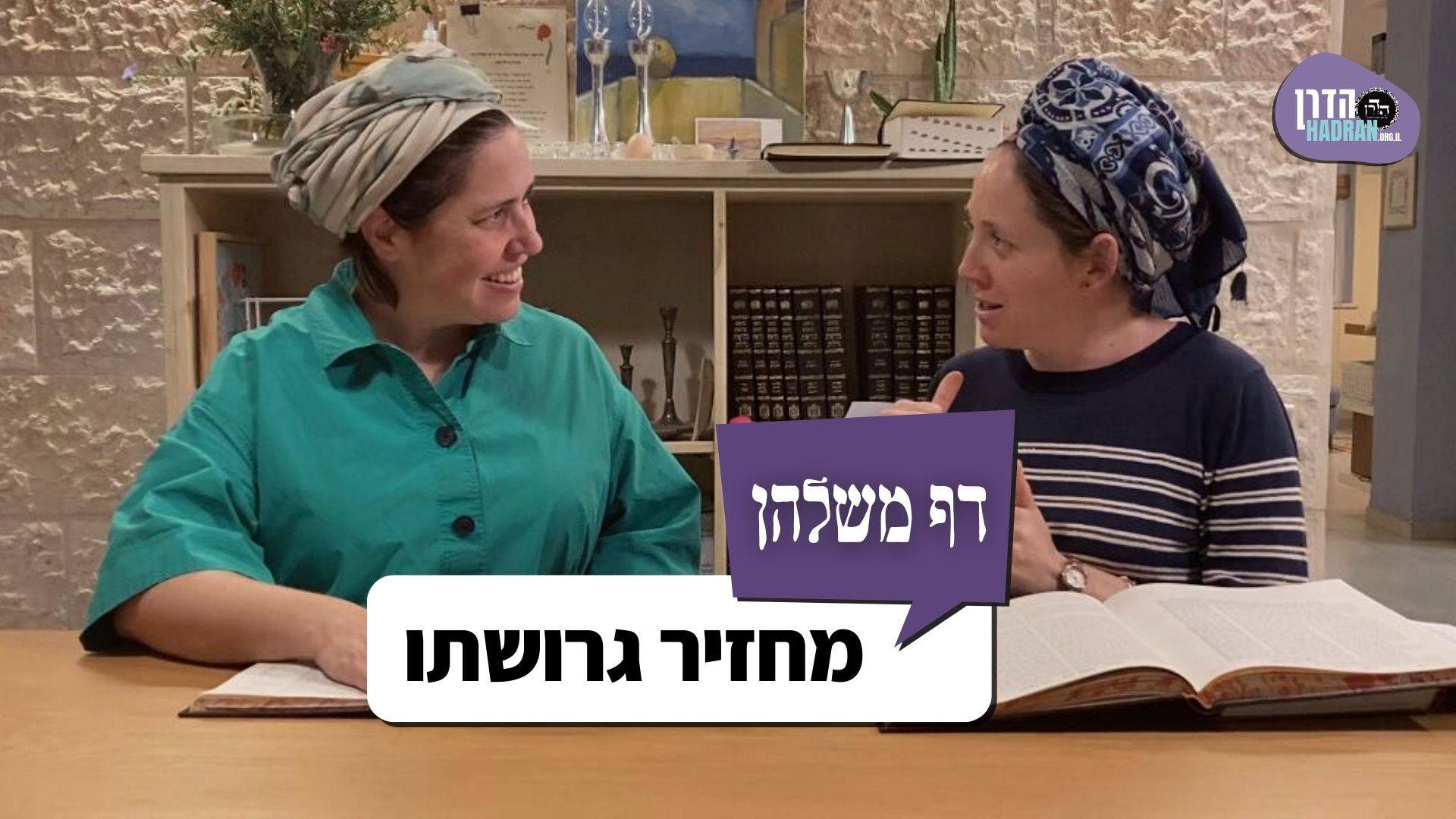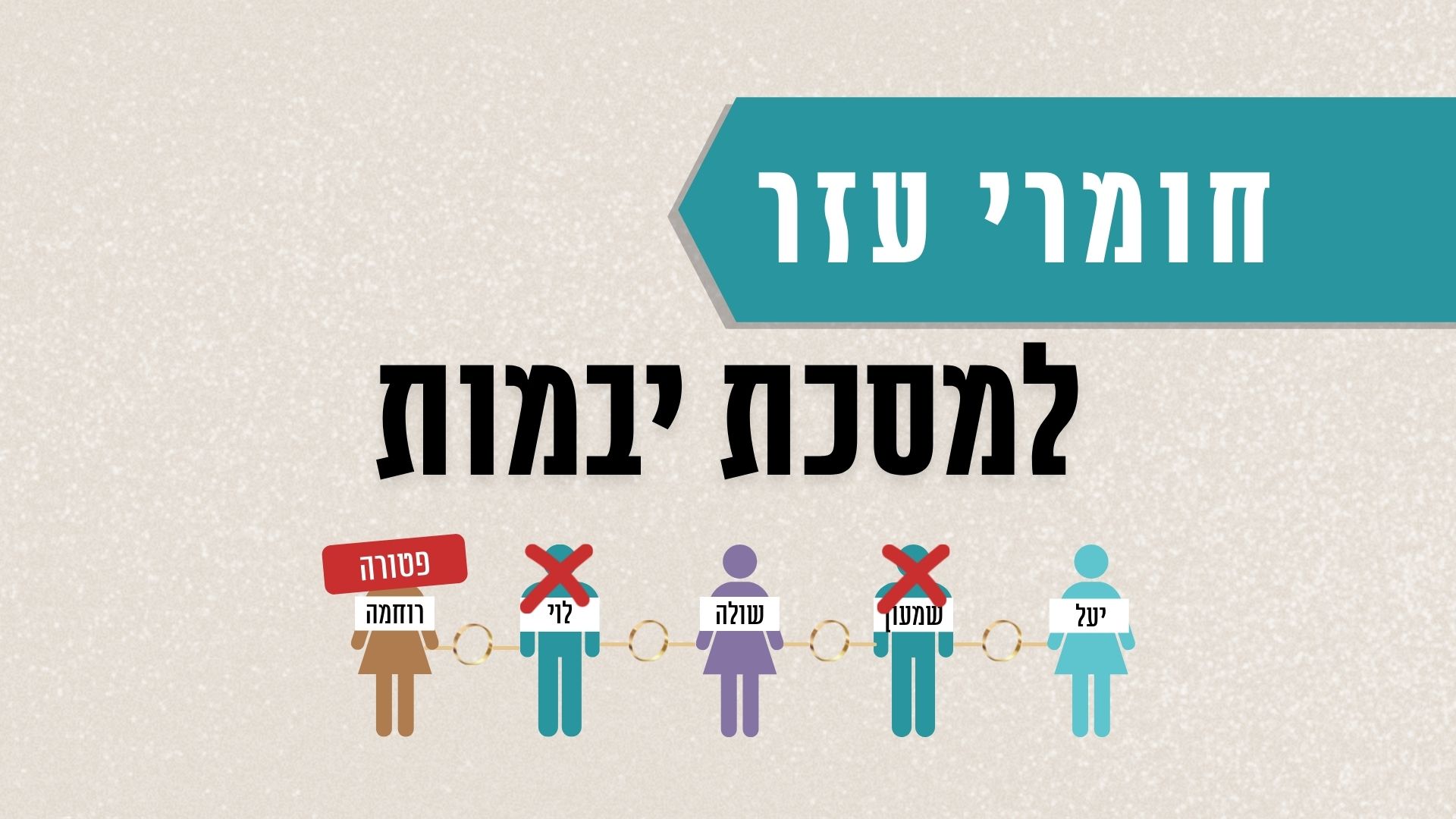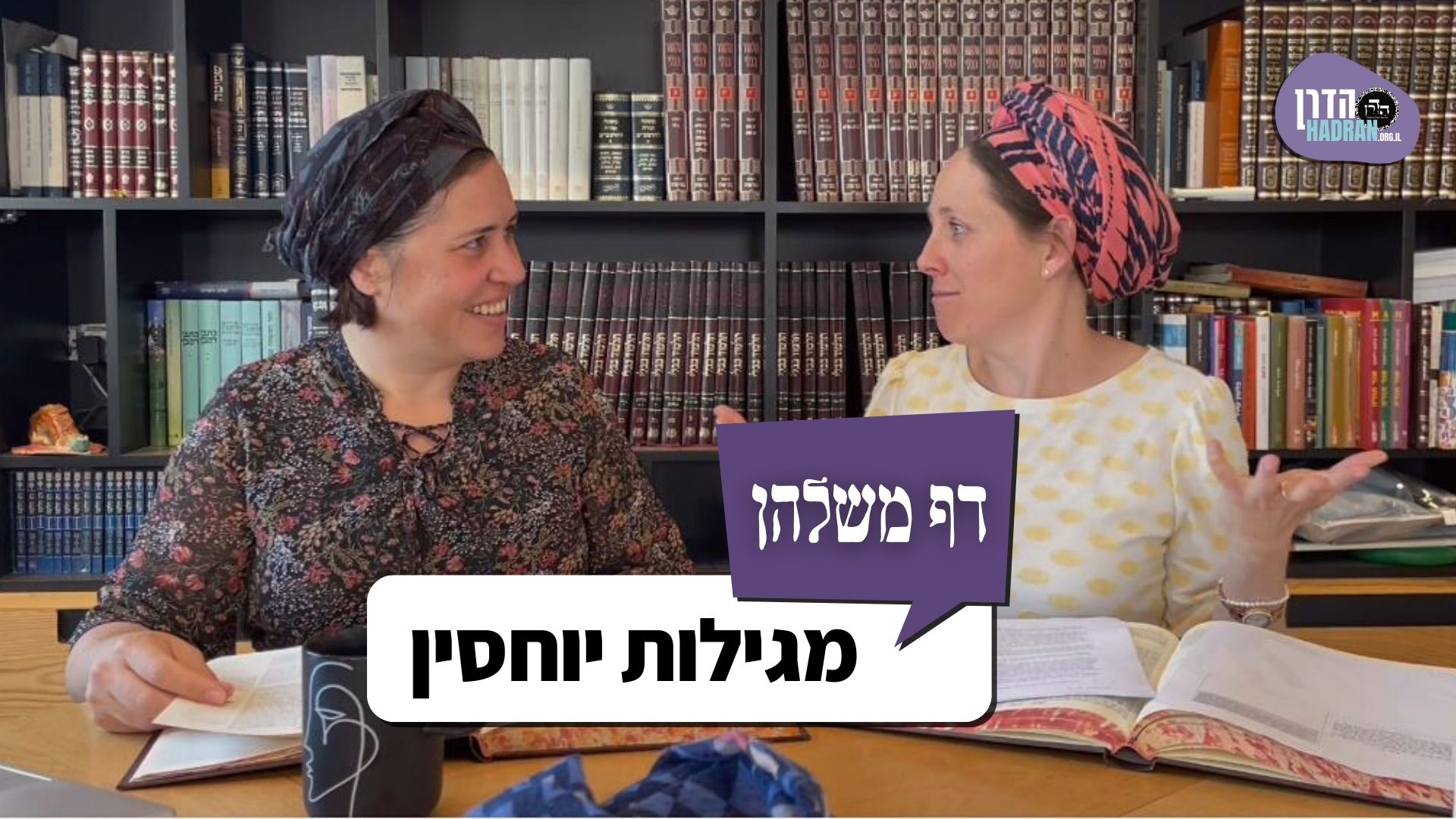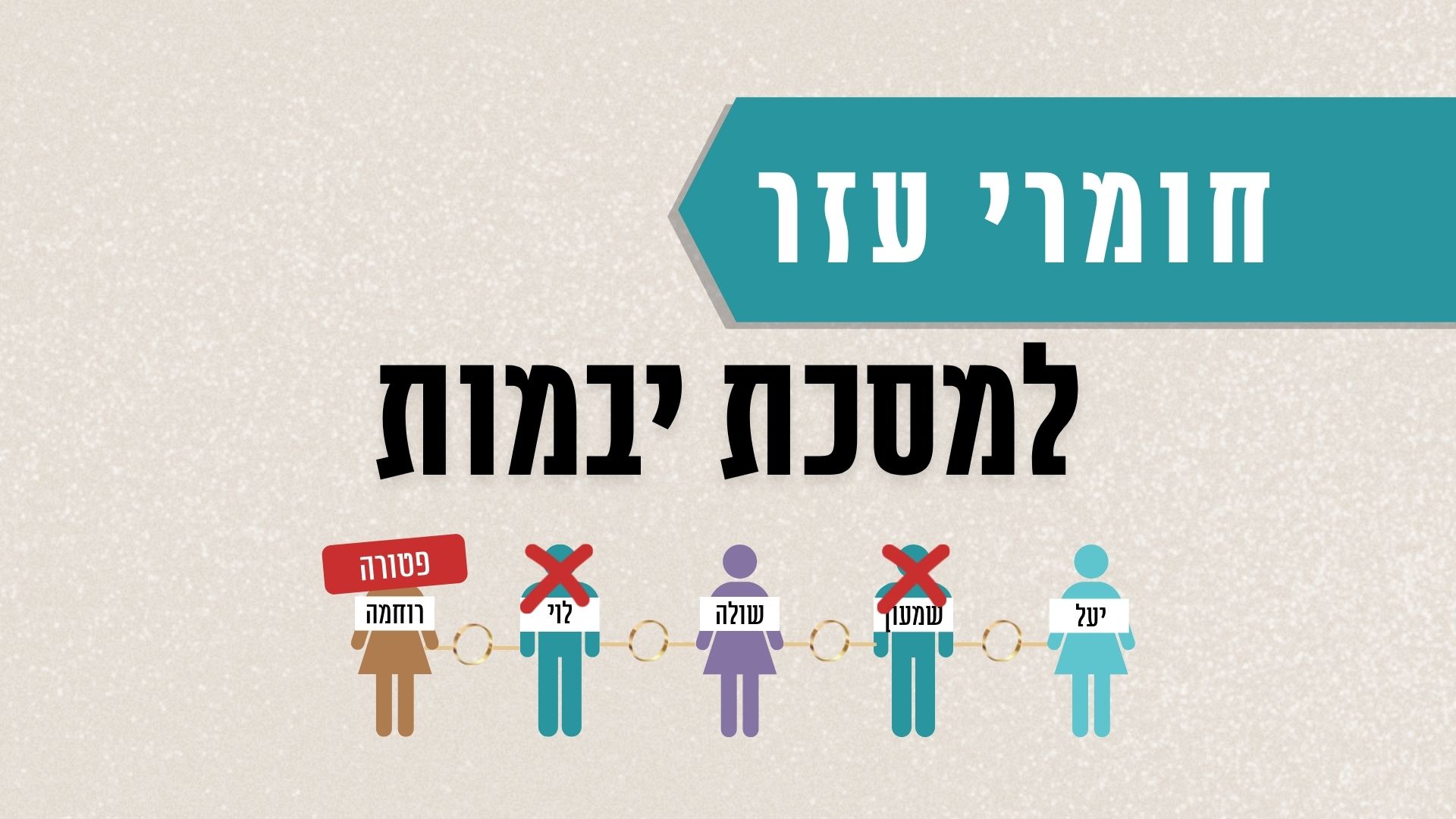יבמות ו
לָאו דִּמְחַמֵּר, וַאֲפִילּוּ הָכִי לָא דָּחֵי.
the reference is not to a situation where a father demanded that his child perform prohibited labor on Shabbat that entails karet. Rather, he instructed him to transgress the prohibition against driving a laden animal. Although it is prohibited to cause animals to work on Shabbat, this does not entail the penalty of karet, as it has the status of a regular prohibition. And this shows that if one’s father told him to desecrate Shabbat by driving a donkey, even so, the positive mitzva to honor one’s parents does not override the prohibition against driving a laden animal.
אֶלָּא דְּקַיְימָא לַן דְּאָתֵי עֲשֵׂה וְדָחֵי לֹא תַעֲשֶׂה, לִיגְמַר מֵהָכָא דְּלָא לִידְחֵי!
§ The Gemara asks: If so, rather than that principle in which we maintain that a positive mitzva comes and overrides a prohibition, let us derive from here that it does not override even a regular prohibition. Just as it was inferred above from the case of ritual fringes, in which the positive mitzva overrides the prohibition against diverse kinds, that all other positive mitzvot similarly override any prohibition, perhaps one should infer from the case of honoring one’s parents that positive mitzvot do not override prohibitions at all.
וְכִי תֵּימָא, שָׁאנֵי לָאוֵי דְּשַׁבָּת דַּחֲמִירִי — וְהָא תַּנָּא בְּעָלְמָא קָאֵי, וְלָא קָפָרֵיךְ!
And if you say that one should not infer this from here, as the prohibitions of Shabbat are different in that they are more serious, and for this reason the mitzva to honor one’s parents does not override these prohibitions, this cannot be the case, as the tanna speaks generally of a father who instructs a son to perform a regular prohibition, not to desecrate Shabbat, and he does not raise any difficulty of this kind.
דְּתַנְיָא, יָכוֹל אָמַר לוֹ אָבִיו: הִיטַּמֵּא, אוֹ שֶׁאָמַר לוֹ: אַל תַּחְזִיר, יָכוֹל יִשְׁמַע לוֹ? תַּלְמוּד לוֹמַר: ״אִישׁ אִמּוֹ וְאָבִיו תִּירָאוּ וְאֶת שַׁבְּתוֹתַי תִּשְׁמוֹרוּ״, כּוּלְּכֶם חַיָּיבִין בִּכְבוֹדִי.
As it is taught in a different baraita: One might have thought that if one’s father said to his son, who is a priest or nazirite: Be rendered ritually impure with impurity imparted by a corpse, so as to bring me an item from a ritually impure place, or if he said to him: Do not return this lost item, it might have been supposed that his son should obey him. Therefore, the verse states: “You shall fear every man his mother and his father and you shall keep My Shabbatot, I am the Lord your God” (Leviticus 19:3). This verse teaches: All of you are obligated in My honor. This proves that the tanna does not differentiate between desecrating Shabbat, which is a severe prohibition, and a priest becoming ritually impure with impurity imparted by a corpse, which is a lighter prohibition.
אֶלָּא, מִשּׁוּם דְּאִיכָּא לְמִיפְרַךְ:
§ Rather, the Gemara rejects this line of reasoning and accepts the claim that the baraita does not speak of one whose father asked him to desecrate Shabbat by performing a prohibited labor that entails karet, but of a father who instructed his son to drive a laden animal. As for the difficulty that this apparently indicates that a positive mitzva does not override any type of prohibition, the reason that this is not the case is because there is room to refute this argument.
מָה לְהָנָךְ שֶׁכֵּן הֶכְשֵׁר מִצְוָה.
The Gemara explains how the previous claim can be countered: What about the fact that these instructions of a father are different, as when one drives an animal on Shabbat in honor of his parents this is merely preparation for the mitzva of honoring one’s parents, since the son is not actually feeding or clothing his father at the time. Consequently, this is not a proper fulfillment of a positive mitzva, and therefore the case of a father who instructs his son to drive an animal cannot be used as a source with regard to other instances.
אֶלָּא, סָלְקָא דַּעְתָּךְ אָמֵינָא: תֵּיתֵי מִבִּנְיַן בֵּית הַמִּקְדָּשׁ. דְּתַנְיָא: יָכוֹל יְהֵא בִּנְיַן בֵּית הַמִּקְדָּשׁ דּוֹחֶה שַׁבָּת — תַּלְמוּד לוֹמַר: ״אֶת שַׁבְּתוֹתַי תִּשְׁמוֹרוּ וּמִקְדָּשִׁי תִּירָאוּ״ — כּוּלְּכֶם חַיָּיבִין בִּכְבוֹדִי.
Rather, it could enter your mind to say: The principle that a positive mitzva overrides even a prohibition that entails karet is derived from the building of the Temple. As it is taught in a baraita: One might have thought that the building of the Temple should override Shabbat; therefore, the verse states: “You shall keep My Shabbatot and revere My Sanctuary, I am the Lord” (Leviticus 19:30), which means that all of you are obligated in My honor. God is honored when Shabbat is observed, and He demands the observance of Shabbat even when the Temple is being built.
מַאי לָאו, בְּבוֹנֶה וְסוֹתֵר, וְטַעְמָא דִּכְתַב רַחֲמָנָא ״אֶת שַׁבְּתוֹתַי תִּשְׁמוֹרוּ״, הָא לָאו הָכִי — דָּחֵי!
The Gemara analyzes this baraita: What, is it not referring to building the Temple by performing prohibited labors on Shabbat whose violation entails karet, such as building and demolishing? And the reason the building of the Temple does not override Shabbat is that the Merciful One specifically writes: “Keep My Shabbatot,” from which it may be inferred that if that were not so, the positive mitzva would override Shabbat. It is therefore possible to deduce from here that in general, positive mitzvot override even prohibitions that entail karet.
לָא, לָאו דִּמְחַמֵּר, וַאֲפִילּוּ הָכִי לָא דָּחֵי. וְאֶלָּא דְּקַיְימָא לַן דְּאָתֵי עֲשֵׂה וְדָחֵי לֹא תַעֲשֶׂה, לִיגְמַר מֵהָכָא דְּלָא דָּחֵי!
The Gemara responds: No, here too the reference is to the prohibition against driving a laden animal, and even so the positive mitzva to build the Temple does not override the prohibition against driving a laden animal on Shabbat. The Gemara asks again, as before: If so, rather than that principle in which we maintain that a positive mitzva comes and overrides a prohibition, let us derive from here that it does not override even a regular prohibition.
וְכִי תֵּימָא, שָׁאנֵי לָאוֵי דְּשַׁבָּת דַּחֲמִירִי — וְהָא תַּנָּא בְּעָלְמָא קָאֵי, וְלָא קָא פָרֵיךְ! דְּתַנְיָא, יָכוֹל אָמַר לוֹ אָבִיו: הִיטַּמֵּא, אוֹ שֶׁאָמַר לוֹ: אַל תַּחְזִיר, יָכוֹל יִשְׁמַע לוֹ — תַּלְמוּד לוֹמַר: ״אִישׁ אִמּוֹ וְאָבִיו תִּירָאוּ וְגוֹ׳״ — כּוּלְּכֶם חַיָּיבִים בִּכְבוֹדִי.
And if you say that prohibitions of Shabbat are different in that they are more severe, this cannot be the case, as the tanna speaks generally and he does not raise any difficulty of this kind as it is taught in the aforementioned baraita: One might have thought that if one’s father said to his son who is a priest or nazirite: Be rendered ritually impure, or if he said to him: Do not return this lost item, it might have been supposed that his son should obey him. Therefore, the verse states: “You shall fear every man his mother and his father and you shall keep My Shabbatot, I am the Lord your God” (Leviticus 19:3), which means: All of you are obligated in My honor.
אֶלָּא, מִשּׁוּם דְּאִיכָּא לְמִיפְרַךְ: מָה לְהָנָךְ שֶׁכֵּן הֶכְשֵׁר מִצְוָה. הֶכְשֵׁר מִצְוָה תִּיפּוֹק לִי מֵהָתָם?
Rather, there is no proof from here with regard to all Torah prohibitions, because there is room to refute that argument as follows: What about the fact that these instances of driving an animal on Shabbat are merely a preparation for the mitzva of building the Temple, and are not a mitzva in itself? The Gemara raises a difficulty: Let the halakha that preparation for a mitzva does not override a prohibition be derived from there, the case of honoring one’s parents, as stated previously. Why repeat this matter with regard to the building of the Temple?
אִין הָכִי נָמֵי. וְ״אֶת שַׁבְּתוֹתַי תִּשְׁמוֹרוּ וּמִקְדָּשִׁי תִּירָאוּ״ לְמָה לִי? מִיבְּעֵי לֵיהּ, לְכִדְתַנְיָא: יָכוֹל יִתְיָירֵא אָדָם מִמִּקְדָּשׁ, תַּלְמוּד לוֹמַר: ״אֶת שַׁבְּתוֹתַי תִּשְׁמוֹרוּ וְאֶת מִקְדָּשִׁי תִּירָאוּ״. נֶאֶמְרָה שְׁמִירָה בַּשַּׁבָּת, וְנֶאֶמְרָה מוֹרָא בַּמִּקְדָּשׁ. מָה שְׁמִירָה הָאֲמוּרָה בַּשַּׁבָּת —
The Gemara responds: Yes, it is indeed so. And why do I need the verse: “You shall keep My Shabbatot, and revere My Sanctuary” (Leviticus 19:30)? After all, the halakha that the building of the Temple does not override the prohibition against driving an animal on Shabbat is derived from the case of honoring one’s parents. The Gemara answers: It is necessary to derive that which is taught in a baraita: One might have thought that a person should be in reverence of the Temple and turn the Temple itself into an object of worship. Therefore, the verse states: “You shall keep My Shabbatot, and revere My Sanctuary.” The term keeping is stated with regard to Shabbat, and the term reverence is stated with regard to the Temple. Just as in the case of keeping stated with regard to Shabbat,
לֹא מִשַּׁבָּת אַתָּה מִתְיָירֵא, אֶלָּא מִמִּי שֶׁהִזְהִיר עַל הַשַּׁבָּת, אַף מוֹרָא הָאֲמוּרָה בַּמִּקְדָּשׁ — לֹא מִמִּקְדָּשׁ אַתָּה מִתְיָירֵא, אֶלָּא מִמִּי שֶׁהִזְהִיר עַל הַמִּקְדָּשׁ.
you do not revere Shabbat itself, as reverence is not mentioned in this context, but rather, one reveres He Who warned about the observance of Shabbat, so too, the same applies to the reverence stated with regard to the Temple: You do not revere the Temple itself but He Who warned about the Temple.
וְאֵי זוֹ הִיא מוֹרָא מִקְדָּשׁ? לֹא יִכָּנֵס אָדָם בְּהַר הַבַּיִת בְּמַקְלוֹ, בְּמִנְעָלוֹ, בְּפוּנְדָּתוֹ, וּבְאָבָק שֶׁעַל גַּבֵּי רַגְלָיו, וְלֹא יַעֲשֶׂנּוּ קַפַּנְדַּרְיָא. וּרְקִיקָה מִקַּל וָחוֹמֶר.
The baraita explains: And what is the reverence of the Temple? In deference to the Temple, a person may not enter the Temple Mount with his staff, his shoes, his money belt [punda], or even the dust on his feet. One may not make the Temple a shortcut [kappendarya] to pass through it, and through an a fortiori inference, all the more so one may not spit on the Temple Mount, as no disrespect is meant by the other actions, whereas spitting is repulsive even in one’s own private home, and certainly on the Temple Mount.
וְאֵין לִי אֶלָּא בִּזְמַן שֶׁבֵּית הַמִּקְדָּשׁ קַיָּים, בִּזְמַן שֶׁאֵין בֵּית הַמִּקְדָּשׁ קַיָּים — מִנַּיִן? תַּלְמוּד לוֹמַר: ״אֶת שַׁבְּתוֹתַי תִּשְׁמוֹרוּ וּמִקְדָּשִׁי תִּירָאוּ״. מָה שְׁמִירָה הָאֲמוּרָה בְּשַׁבָּת — לְעוֹלָם, אַף מוֹרָא הָאֲמוּרָה בַּמִּקְדָּשׁ — לְעוֹלָם.
And I have derived only that one is obligated to act in this manner when the Temple is standing. From where do I derive that the mitzva to revere the Temple is in force when the Temple is not standing, i.e., that it is prohibited to be disrespectful toward the place where the Temple stood? The verse states: “You shall keep My Shabbatot, and revere My Sanctuary” (Leviticus 19:30). Just as the keeping stated with regard to Shabbat applies forever, so too, the reverence stated with regard to the Temple is forever.
אֶלָּא, סָלְקָא דַּעְתָּךְ אָמֵינָא: תֵּיתֵי מֵהַבְעָרָה. דְּתָנָא דְּבֵי רַבִּי יִשְׁמָעֵאל: ״לֹא תְבַעֲרוּ אֵשׁ בְּכֹל מוֹשְׁבוֹתֵיכֶם״, מָה תַּלְמוּד לוֹמַר?
§ With regard to the issue at hand, the Gemara has not yet found an explanation as to why a specific inference was required to teach that a positive mitzva overrides a prohibition that incurs karet. Rather, it might enter your mind to say that this claim might be derived from the halakha of kindling, as the school of Rabbi Yishmael taught with regard to the verse: “You shall kindle no fire throughout your habitations on Shabbat day” (Exodus 35:3). What is the meaning when the verse states this, as the general prohibition against performing labor on Shabbat appears elsewhere?
מָה תַּלְמוּד לוֹמַר?! אִי לְרַבִּי יוֹסֵי — לְלָאו. אִי לְרַבִּי נָתָן — לְחַלֵּק.
The Gemara expresses puzzlement at this question: What is the meaning when the verse states this? What kind of question is this? If the halakha is in accordance with the opinion of Rabbi Yosei, the verse comes to teach that one who kindles fire on Shabbat merely violates a regular prohibition, which does not entail the penalty of stoning, unlike other prohibited labors. If the halakha is in accordance with the opinion of Rabbi Natan, kindling was singled out to divide the various prohibited labors of Shabbat and to establish liability for the separate performance of each of them.
דְּתַנְיָא: הַבְעָרָה לְלָאו יָצָתָה, דִּבְרֵי רַבִּי יוֹסֵי. רַבִּי נָתָן אוֹמֵר: לְחַלֵּק.
As it is taught in a baraita: The prohibition against kindling was singled out from the general category of prohibited labors and written explicitly to teach that it is unlike other prohibited labors, as it is a regular prohibition, which does not entail the punishment of stoning. This is the statement of Rabbi Yosei. Rabbi Natan says: Kindling is like any other labor prohibited on Shabbat, and it was singled out to divide. In other words, by stating one prohibited labor separately, the Torah teaches that each labor on Shabbat constitutes its own separate prohibition. Consequently, one who unwittingly violates several categories of labor is obligated to bring as many sin-offerings as the prohibited labors he violated.
וְאָמַר רָבָא: תַּנָּא ״מוֹשָׁבוֹת״ קָא קַשְׁיָא לֵיהּ: ״מוֹשָׁבוֹת״ מָה תַּלְמוּד לוֹמַר?
And Rava said in explanation of the question asked by the school of Rabbi Yishmael: For this tanna, the term “habitations” poses a difficulty with regard to his opinion. The baraita should be understood as follows: What is the meaning when the verse states “habitations”? What additional inference is indicated by this term, which might lead to the erroneous conclusion that this Shabbat prohibition applies only in certain places of habitation?
מִכְּדֵי שַׁבָּת חוֹבַת הַגּוּף הִיא, וְחוֹבַת הַגּוּף נוֹהֶגֶת בֵּין בָּאָרֶץ בֵּין בְּחוּץ לָאָרֶץ, ״מוֹשָׁבוֹת״ דִּכְתַב רַחֲמָנָא בְּשַׁבָּת — לְמָה לִּי?
The Gemara explains why “habitations” cannot mean that Shabbat observance applies only in certain places. Since Shabbat is an obligation that applies to the body, i.e., to the individual himself and not to an external object, and there is a principle that obligations of the body apply both in Eretz Yisrael and outside of Eretz Yisrael, then why do I need the term “habitations” that the Merciful One writes with regard to Shabbat?
מִשּׁוּם רַבִּי יִשְׁמָעֵאל אָמַר תַּלְמִיד אֶחָד, לְפִי שֶׁנֶּאֱמַר: ״וְכִי יִהְיֶה בְאִישׁ חֵטְא מִשְׁפַּט מָוֶת וְהוּמָת״, שׁוֹמֵעַ אֲנִי בֵּין בַּחוֹל בֵּין בַּשַּׁבָּת. וּמָה אֲנִי מְקַיֵּים ״מְחַלְּלֶיהָ מוֹת יוּמָת״ — בִּשְׁאָר מְלָאכוֹת, חוּץ מִמִּיתַת בֵּית דִּין. אוֹ אֵינוֹ אֶלָּא אֲפִילּוּ מִיתַת בֵּית דִּין, וּמָה אֲנִי מְקַיֵּים ״וְהוּמָת״ — בַּחוֹל וְלֹא בַּשַּׁבָּת.
A student said in the name of Rabbi Yishmael that since it is stated: “And if a man has committed a sin worthy of death, and he is put to death” (Deuteronomy 21:22), I would derive that the death penalty is administered whether on a weekday or on a Shabbat. And how do I establish the verse: “And you shall keep Shabbat, for it is sacred to you; every one who profanes it shall surely be put to death” (Exodus 31:14)? This verse applies to other prohibited labors, except for court-imposed capital punishment, which must be administered even on Shabbat. Or perhaps it is only the case that even court-imposed capital punishment is included in the list of prohibited labors on Shabbat. How, then, do I establish the verse: “And he is put to death”? This is referring to a weekday and not to Shabbat.
אוֹ אֵינוֹ אֶלָּא אֲפִילּוּ בַּשַּׁבָּת, תַּלְמוּד לוֹמַר: ״לֹא תְבַעֲרוּ אֵשׁ בְּכֹל מוֹשְׁבוֹתֵיכֶם״, וּלְהַלָּן הוּא אוֹמֵר: ״וְהָיוּ אֵלֶּה לָכֶם לְחֻקַּת מִשְׁפָּט לְדוֹרוֹתֵיכֶם בְּכֹל מוֹשְׁבוֹתֵיכֶם״,
Surprisingly, the tanna reverts back to his earlier claim: Or perhaps it is only the case that capital punishments may be administered even on Shabbat? Therefore, the verse states by way of a verbal analogy: “You shall kindle no fire throughout your habitations on Shabbat day” (Exodus 35:3) and below it says, at the end of the chapter dealing with murderers: “And these things shall be for you a statute of judgment to you throughout your generations in all your habitations” (Numbers 35:29).
מָה מוֹשָׁבוֹת הָאֲמוּרִים לְהַלָּן — בְּבֵית דִּין, אַף מוֹשָׁבוֹת הָאֲמוּרִים כָּאן — בְּבֵית דִּין, וְאָמַר רַחֲמָנָא: ״לֹא תְבַעֲרוּ״.
Just as the term “habitations” stated below, in Numbers, means in the court, where judgment is performed, so too, the term “habitations” stated here means in the court, i.e., in the place where judges preside. And the Merciful One states in the Torah: “You shall kindle no fire.” Since one of the court-imposed death penalties is burning, which is performed by kindling fire, then evidently, court-imposed death penalties do not override Shabbat.
מַאי לָאו: רַבִּי נָתָן הִיא, דְּאָמַר: לְחַלֵּק יָצָתָה. וְטַעְמָא דִּכְתַב רַחֲמָנָא ״לֹא תְבַעֲרוּ״, הָא לָאו הָכִי — דָּחֵי?
With the above conclusion in mind, the Gemara comments: What, is it not the case that the opinion of the school of Rabbi Yishmael is in accordance with that of Rabbi Natan, who said that the prohibition against kindling fire was singled out to divide, and therefore lighting a fire is punishable by karet and stoning? And if so, the reason why capital punishments are not administered on Shabbat is that the Merciful One writes: “You shall kindle no fire,” from which it may be inferred that if it were not so, then court-imposed capital punishment would override Shabbat. In other words, the positive mitzva of legal execution would override the prohibition against lighting a fire on Shabbat, which incurs karet.
לָא, רַבִּי יוֹסֵי. וְתִיהְוֵי נָמֵי רַבִּי יוֹסֵי, אֵימַר דְּאָמַר רַבִּי יוֹסֵי: הַבְעָרָה לְלָאו יָצָתָה — הַבְעָרָה גְּרֵידְתָּא,
The Gemara rejects this: No, there is no proof from here, as it can be claimed that the opinion of the tanna from the school of Rabbi Yishmael is in accordance with the opinion of Rabbi Yosei that kindling fire is an ordinary prohibition. The Gemara retorts: And let it even be according to the opinion of Rabbi Yosei. You can say that when Rabbi Yosei said that kindling was singled out as a prohibition, he was referring to kindling alone, i.e., that lighting a regular fire is only a regular prohibition.
הַבְעָרָה דְּבֵית דִּין — בִּישּׁוּל פְּתִילָה הוּא!
Conversely, the kindling by the court for the execution of burning is actually the cooking of a leaden wick. Since execution by burning involves melting, or cooking, a piece of lead, called a wick, and pouring it into the mouth of the convict, it therefore constitutes the prohibited labor of cooking, which is a different prohibition than kindling fire.
וְאָמַר רַב שֵׁשֶׁת: מָה לִי בִּישּׁוּל פְּתִילָה, מָה לִי בִּישּׁוּל סַמָּנִין.
And Rav Sheshet said in this regard: What difference is there to me between cooking a wick, which is performed for court-imposed capital punishments, and what difference is there to me between the cooking of herbs used to dye curtains for the Tabernacle, from whose work the list of prohibited labors on Shabbat is derived? Since the court-imposed death penalty involves the prohibited labor of cooking, which according to all opinions incurs karet, this apparently indicates that without the special verse that renders this prohibited, one would have said that a positive mitzva overrides a prohibition for which one is liable to receive karet.
אָמַר רַב שִׁימִי בַּר אָשֵׁי: הַאי תַּנָּא לָא מִשּׁוּם דְּאָתֵי עֲשֵׂה וְדָחֵי לֹא תַעֲשֶׂה, אֶלָּא מִשּׁוּם דְּמַיְיתֵי מִקַּל וָחוֹמֶר. וְהָכִי קָאָמַר: מָה אֲנִי מְקַיֵּים ״מְחַלְּלֶיהָ מוֹת יוּמָת״ — בִּשְׁאָר מְלָאכוֹת, חוּץ מִמִּיתַת בֵּית דִּין. אֲבָל מִיתַת בֵּית דִּין — דָּחֲיָא שַׁבָּת מִקַּל וָחוֹמֶר,
The Gemara rejects this argument as well. Rav Shimi bar Ashi said: This tanna does not raise the possibility that a court-administered death penalty might override Shabbat because a positive mitzva comes and overrides a prohibition. Rather, he entertains this option because he learns this by means of an a fortiori inference, and this is what he is saying: How do I establish the verse “Every one who profanes it shall surely be put to death” (Exodus 31:14)? This applies to other prohibited labors, except for court-imposed capital punishment. However, it could be said that court-imposed capital punishment overrides Shabbat, by an a fortiori inference:

